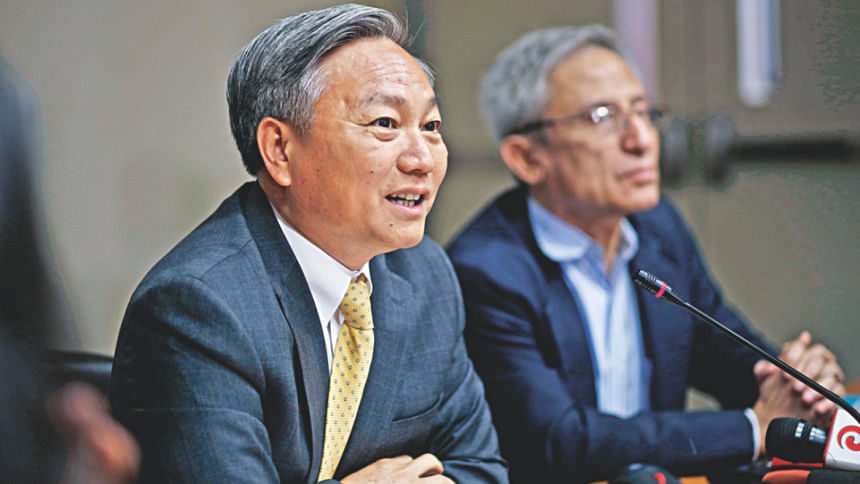New VAT to boost economic growth, revenue: WB

The World Bank yesterday endorsed the new value-added tax law, saying the effective implementation of the legislation will boost economic growth and revenue generation.
The Washington-based lender said the new VAT law and the new income tax zones aimed at widening the tax base are the steps in the right direction.
“I do believe the introduction of VAT is investment-friendly,” Qimiao Fan, country director of the WB, said at a media briefing on the upcoming budget at his office in Dhaka.
“It takes away much of the discretion and the non-transparent nature of some of the existing taxes.”
The VAT and Supplementary Duty Act 2012 got passage in parliament in 2012. Since then the government has been discussing the law with stakeholders to implement it.
However, the government's decision to enforce the 15 percent VAT rate from July 1 has drawn huge criticisms from ruling party lawmakers, ministers, economists, and opposition politicians.
The uniform 15 percent VAT rate will replace the existing 15 percent standard rate and a number of truncated rates in some cases.
Zahid Hussain, lead economist of the WB, said the law is not being implemented in the way it was envisaged five years ago.
Under the new law, supplementary duties are to be withdrawn completely. But the upcoming budget has not proposed the withdrawal.
“Supplementary duties have continued to protect domestic industries, which will increase pressure on consumers who buy imported items,” said Hussain. He said the implementation of the new VAT law would not put additional strain on consumers although it remains to be analysed.
If the VAT and Supplementary Duty Act 2012 is implemented in its original form, inflation could go up by 0.5 percentage points, said Hussain, citing studies of the International Monetary Fund and the Policy Research Institute of Bangladesh.
“The proposed VAT law has extended the exemptions, so the impact should be much lower. The propaganda against the new law could have a negative impact on the markets,” he said.
Hussain said the new law has given more concessions compared to the initial law formulated five years ago. “But nobody is focusing on that.”
Fan said there is a huge demand in the country for investment in education, health and infrastructure. So the country will need to borrow externally.
“Bangladesh should focus on concessional loans,” he said, adding that the country can go for some of the bilateral loans that have concessionary elements.
It is also very important to make sure that the borrowed money is spent on top priorities such as infrastructure, education and healthcare, Fan said.
“How that money is spent is equally important.”
The WB also said the budget for the upcoming fiscal year is ambitious. “We say it is ambitious because raising revenue and expenditure in a one-year period is very significant. The GDP growth [target] is also almost unprecedented. These are clearly very ambitious targets.”
He, however, said the targets can be realised. “I do believe that Bangladesh can achieve even higher growth rates in the medium and long terms.”
In order to achieve higher growth and earn more revenue, Bangladesh will have to implement the VAT law effectively and undertake reforms in areas that are currently constraining the growth potential, he said.

 For all latest news, follow The Daily Star's Google News channel.
For all latest news, follow The Daily Star's Google News channel. 



Comments